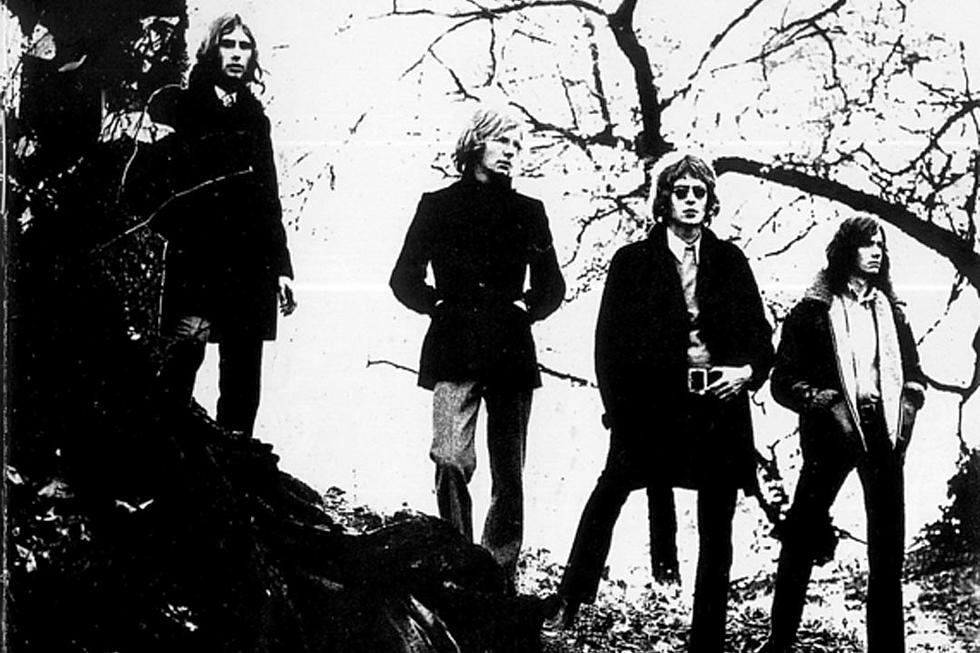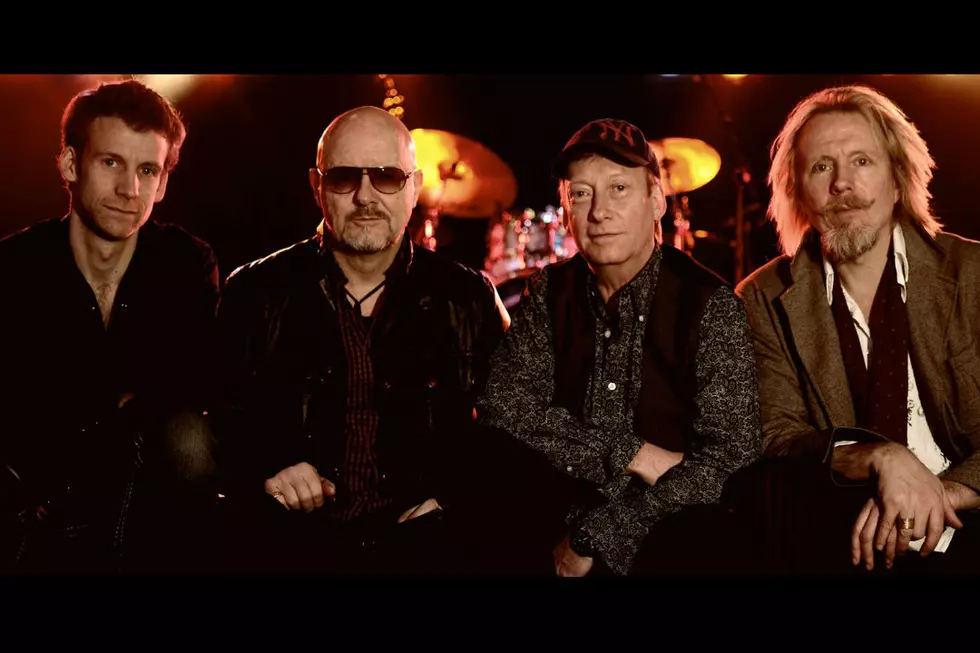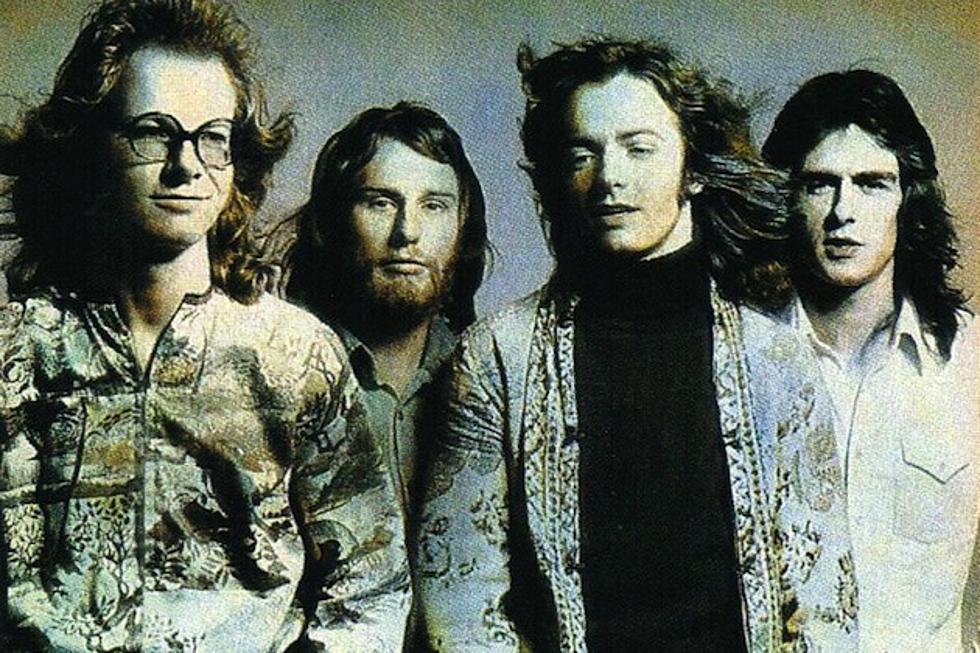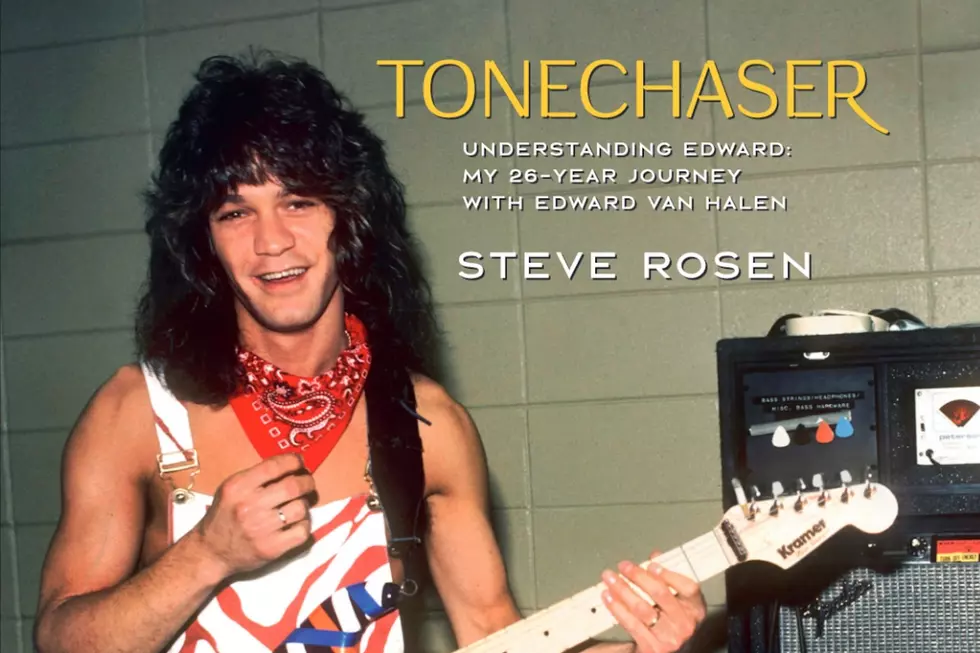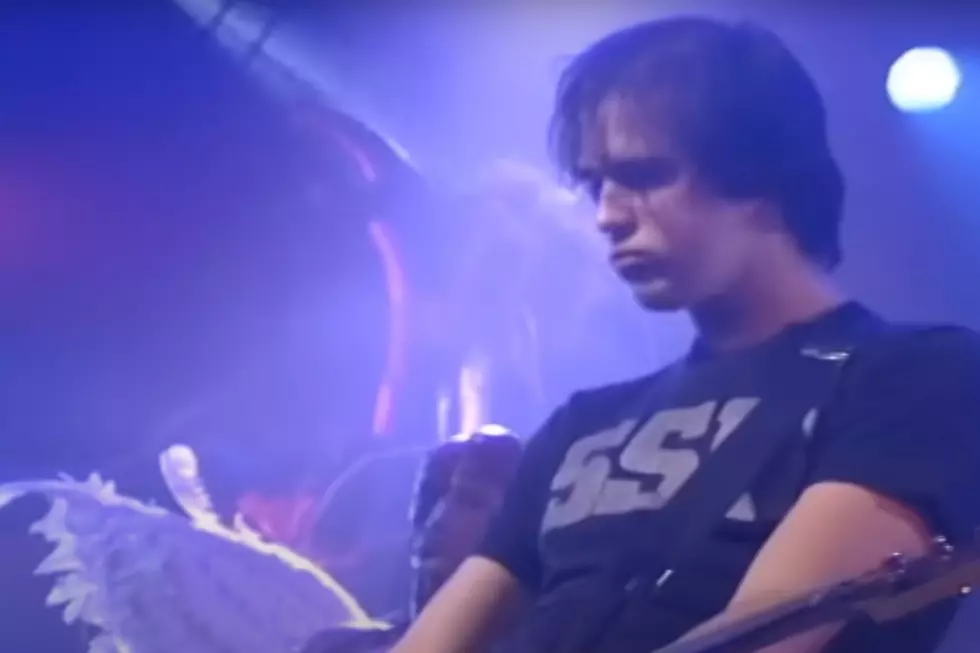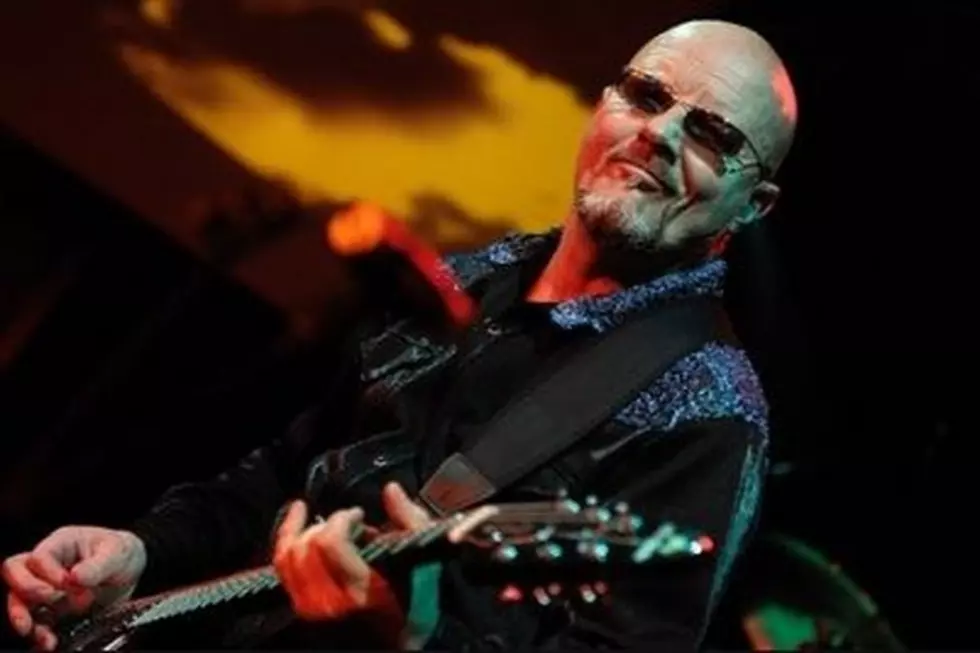
Andy Powell on Wishbone Ash: ‘It’s a Great Time for Bands Like Us’
Andy Powell is the guitarist, singer and longest-serving member of the seminal British progressive rock band Wishbone Ash, whose twin-guitar approach influenced a generation of players. He's been a mainstay of the group for more than 40 years, through a series of the usual ups and downs and member changes that the rock and roller coaster brings to every long-lived act.
In 2011 Wishbone Ash released 'Elegant Stealth,' an album that many critics hailed as one of the best the band have released in years. Buoyed by the success of their North American tour in 2012, the group are currently embarked on another road trek stateside. Many of those dates will feature Wishbone Ash performing their classic 1972 album 'Argus' live in its entirety.
Powell recently spoke to Ultimate Classic Rock about the tour, the album, and his long career with Wishbone Ash in the following wide-ranging interview.
Tell us about the rehearsal process for the tour. How do you put together a set list with so much material to choose from?
For a large number of dates on the American tour we decided to actually do a two-part set, and feature the 'Argus' album in its entirety. There are two types of fans that come to our shows; the people that may not have seen us that many times, but they are aware of the classic songs -- and the 'Argus' album is probably the most well-known album from the '70s. A lot of bands are doing that, playing a classic album, and that takes the best part of 45 or 50 minutes.
We're always changing and revamping our set. Currently we're doing a selection of songs from our new album, 'Elegant Stealth,' and then reaching back through the '70s and '80s for some songs that people who come to our shows on a regular basis would like to hear. You've got the casual fans who might only come to one concert and only know the classic songs, and then you've got the die-hard fans who might come to several concerts, or maybe even every concert in the Northeast, for example.
We just finished touring Germany, and we had some fans -- some of them will come to every show on a tour. [Laughs]. It's quite amazing. And those people, we like to really make sure they get a nice variety of songs, old and new.
What songs from 'Elegant Stealth' are in the set?
We've shifted gears, and we're currently playing 'Man With No Name' and 'Heavy Weather.'
Obviously the band has been through a number of lineup changes over the years. This lineup -- and particularly the 'Elegant Stealth' album -- has been really vital in re-connecting with a lot of fans. It's been really well-received. What do you attribute that to -- what makes one album better than another?
It's a confluence of influences. We've been playing together, this unit, for quite a while now. The rhythm section is really, really road-tested, and myself and Muddy Manninen, my co-guitar player, have been working together for a good eight or nine years now.
'Elegant Stealth' came at a particularly good time. We did an interesting thing, we did a rockumentary film recording of the making of the album, right from the initial stages. So we decided we would go somewhere very pleasant to do this, rather than grabbing snatches of recording time here and there. So we really made the thing a bit more of an occasion, which is how we used to do it back in the day. We really brought that feeling to the table with 'Elegant Stealth,' and we took some time over it -- and I think that's not always been the case in our career. Like a lot of bands, sometimes you're on the road and the label is screaming at you to produce product, as they call it. [Laughs]. But that wasn't the case with this album. We just took our time.
We wanted to make an album where everybody put into the pot. So it's very much a collective group effort. And I just think that right now, it's a great time for bands like us. Guitar music has never been more popular, and also the fact that people are realizing what they have -- before it's too late -- what they have in some of these bands.
You're from that period where people can actually play [Laughs].
Yeah . . . I wasn't going to say that, but yeah, that's it. I think we're riding the wave of that sentiment, where people want to support live music. Sales of recorded music have gone right down, and I think all of the action is out on the road. Well, we never left the road. That's always been our favorite, most comfortable place. That's where the activity for this band is always centered. So the times may suit us right now. It's kind of, get down in the dirt, roll up your sleeves, get on the road and just do it. Don't make a fuss, get back on the bus [Laughs].
So many newer acts rely on technology to shore up what would otherwise be a weak performance.
Well, I like technology. We all use it, but I don't think any of us use it as a crutch. We're still writing music -- it's always been the same with this band, the way I write. It's a very simple approach using the acoustic guitar and your voice. You think of melodies, you think of words and write them down in a school exercise book and bring them to the band.
For finesse things, using technology in the studio is cool. But the discerning rock fans, they're sophisticated enough to want to hear the real performance. They want to hear the pick scraping on the strings, they want to hear the lead singer maybe reaching for a note. You can hear all of that slick production technique with some of the pop stuff you hear on the radio, or the R&B -- or what they're calling R&B these days.
I think 'Elegant Stealth,' for us it was a very organic album. But on a couple of tracks -- namely one of the radio tracks that we put out, which was 'Reason to Believe' -- we did spend a little more time on the production on that one, and polished it up a lot. The rest of the album tracks were pretty live in the studio, and then embellished with as few overdubs as possible. In the old days we double-tracked all of the twin lead guitars. We didn't do that on 'Elegant Stealth.' The raw guitar tracks had to be sturdy enough to stand up on their own.
At the end of the day, everything rests on the songs. If you've got a good song structure, good lyrics, a good basis there, then the guitar players can stretch out a little bit over the top, the drummer can go to town on the groove and enhance it. But it's got to start with a good song. It always has been that way. It always will be.
Has the way the internet affects the marketing and distribution of music been good or bad for bands of your era?
A bit of both, I think. When the record labels were at their peak, there were some great, quality people working in the record labels; great A&R men, great producers. There was a support system for that talent. And then they just got greedy, and they just didn't move quick enough to realize the changes that the internet was bringing into it. And then you got kind of a lag -- you got a lot of, for lack of a better word, well-meaning amateurs who took up the slack. And some of those people were able to move things forward and capture the momentum because of their positivity and their passion for the music. But some of that professionalism and marketing ability -- especially for rock -- got lost along the way.
So then the bands took up the slack, and they got very busy, like ourselves. We were one of the first bands to get a website. We realized that our strength was our community, so we really took care of the fans through the internet. We would organize these fan conventions. We've done them all over the world. We've even done them on cruise ships. I know a lot of bands have done that now, but we were one of the first bands to do that.
In the early '90s -- which a lot of people are also doing now -- our fan community actually financed and funded the release of an album, once we realized we weren't going to be with a major record label anymore. And that went really well for us. But something has been lost by the amateurish-ness of the things taking over . . . but something has been gained as well. It's a double-edged sword.
I've seen both sides of the business -- I've seen the glory days of the big labels, and it was a very different time. Back then, rock bands and rock and roll, there was a mystique about it. Now the whole culture is rock and roll. The mystique has kind of gone out of rock music, and now I think people really just enjoy it for the craft. That never goes away. But that mystique that the labels, and the bands themselves were able to play on has been dissipated by the internet, and by reality shows and all the rest of it.
There's no quicker way to ruin a band's mystique than to show a bunch of behind-the-scenes footage of them just goofing off.
[Laughs] Yeah -- witness Spinal Tap, and then witness Anvil, and then some of the other movies out there. Even our own rockumentary, through that movie we gave people massive access to just how we actually start scratching out the ideas for songs. And again, that's great, but it loses some of the mystique.
Is there anything else that you want to say about what you've got coming up?
It's actually been a couple of years now since the 'Elegant Stealth' album. I can't quite believe that myself, but we are due to get in the studio again.
More From Ultimate Classic Rock
